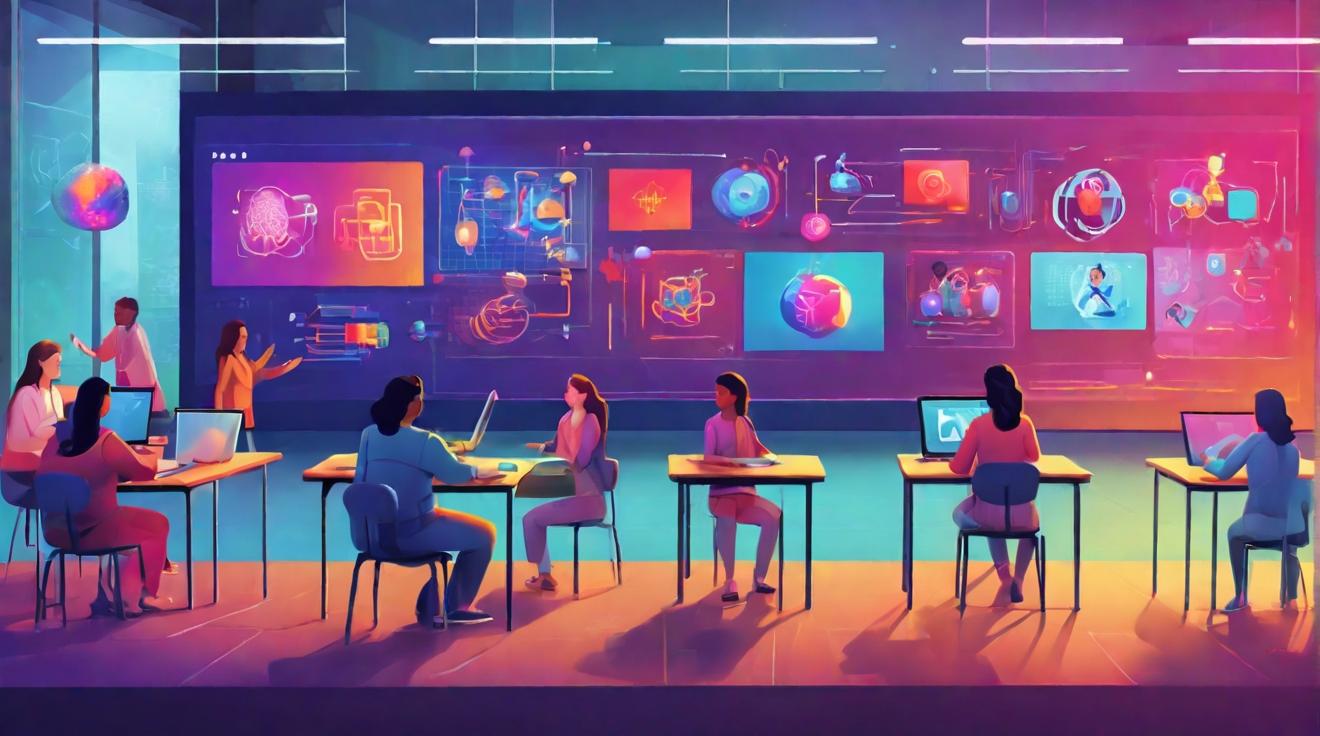Professors Grapple with the Use of AI in the Classroom
In the 21st century, technology has become an integral part of our daily lives. It has also made its way into higher education, prompting educators to reconsider their teaching methods. Many professors believe that technology, including artificial intelligence (AI), can enhance the learning experience and better prepare students for the workforce. However, there are concerns about the potential distractions and academic dishonesty that technology, especially AI programs, can bring to the classroom.
Technology as a Powerful Tool for Teaching and Learning
Assistant Professor Carson Kay believes that technology is one of the greatest tools in the classroom, helping students develop essential skills for their future careers. As educators, it is essential to teach students how to utilize technology in impactful ways that go beyond personal use. Gary Graves, an educational technology lecturer, focuses on equipping future teachers with the skills to effectively integrate technology into their classrooms.
Challenges of Technology in the Classroom
While technology offers numerous advantages, it also comes with challenges. One of the main concerns is the potential for distractions caused by students using their devices during class. The temptation to check messages or notifications can hinder students’ focus and engagement with the content being taught. Furthermore, technology has made it easier for students to access information instantly, leading to plagiarism and academic dishonesty.
The Rise of AI Software and its Implications
The increasing popularity of AI software, such as ChatGPT, has raised concerns about its misuse in academia. Students have been found using these programs to generate responses for papers and test questions, blurring the lines between authentic work and artificially generated content. Detecting such instances of academic dishonesty is a challenge for professors, as they struggle to differentiate between genuine student work and work produced by AI programs.
Setting Boundaries for AI in Education
With AI becoming more prevalent, professors are working to establish guidelines on how much students can rely on these technologies. There is recognition that AI can be a valuable tool for organizing ideas and facilitating learning. However, ensuring the ethical use of AI in education remains a priority. There is a need for ongoing education and professional development for instructors to effectively navigate and identify the ethical use of AI in the classroom.
The Road Ahead for AI in Education
As universities grapple with the integration of AI into their classrooms, Washburn University implements an instructor-by-instructor policy on AI usage. However, as AI programs continue to evolve, there will be a growing need for clear guidelines and regulations. Educators stress the importance of identifying and preventing the unethical use of AI software. Although the journey towards effectively implementing AI in education will take time, the goal is to create a learning environment where AI is used ethically and enhances student learning.
Analyst comment
Positive news: Professors are recognizing the potential benefits of AI in the classroom, such as enhanced learning experiences and better workforce preparation. They are working to establish guidelines for ethical AI use and are focused on preventing academic dishonesty. Washburn University has implemented a policy for AI usage. The market for AI in education is expected to grow, but clear guidelines and regulations will be necessary for its effective integration.













